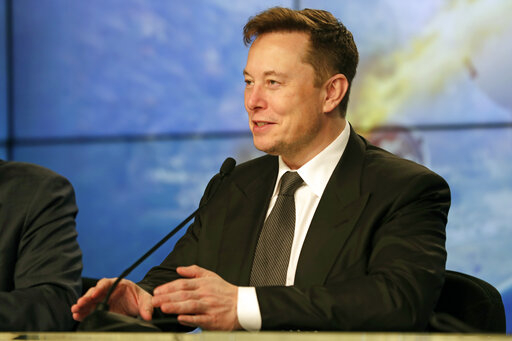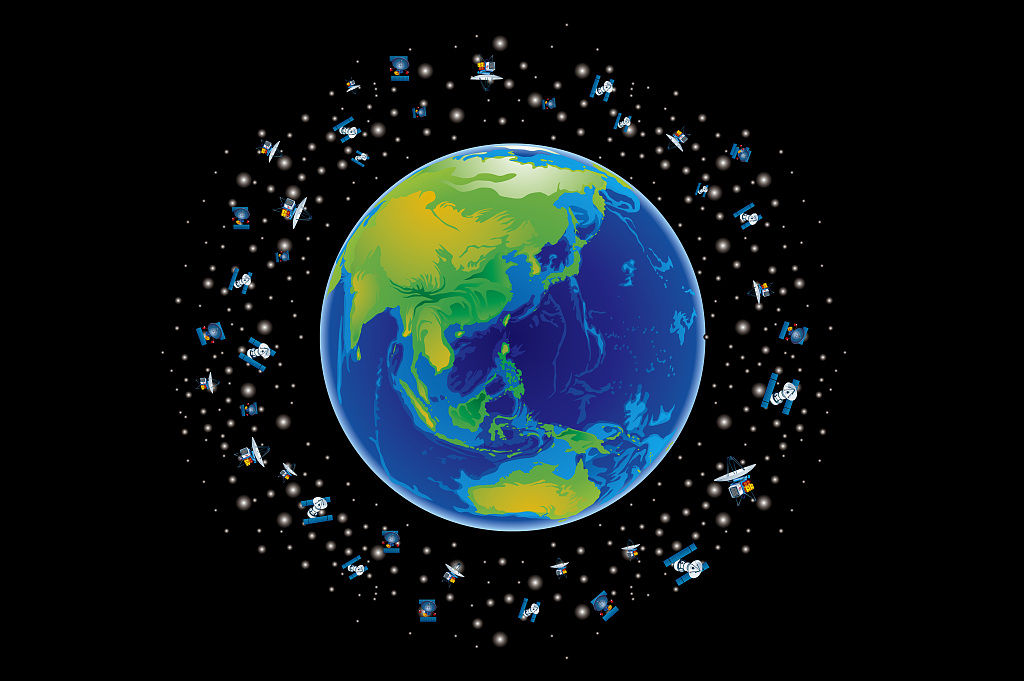The original space race between Soviet Union and the U.S. seems like history. But similar competitions are still ongoing and expected to be scaled-up in the private sector in the next century.
Is this a way to boost space tech research, or a prologue to the chaotic future of space war?
Let's look at some major players first.
Billionaire Elon Musk's SpaceX is well-known for reusable rocket tech and has achieved big accomplishments as the first private company to send supplies to the International Space Station (ISS). Now it's building the Starship to reach "the Moon, Mars and beyond."

Elon Musk, founder of SpaceX, speaks during a news conference, January 19, 2020. /AP Photo
Elon Musk, founder of SpaceX, speaks during a news conference, January 19, 2020. /AP Photo
In the Cold-War era, a privately-owned company launching a decent rocket to do real-world jobs was unimaginable.
But billionaires today are doing almost the same.
Jeff Bezos, Amazon CEO – who's named as the world's richest man now and then – is also busy running Blue Origin, a company that wants "millions of people living and working in space."
Blue Origin brags a lot about space tourism, in which ordinary people pay money to go to the space for fun.
In addition to new companies created for space exploration, a century-old company is also quite active in the race.
Boeing, the U.S. airliner maker that's still struggling with the 737MAX disaster, has been building what they call "Starliners" – the space capsule of the century.
Outside of the U.S., there are also many space endeavors.
Japan is waiting for its Hayabusa 2 to come home from the Ryugu asteroid; India is capable of launching more than 100 satellites with a single rocket; Russia's existence in space didn't disappear like the Soviet Union; The European Space Agency is also making countless contributions to the EU.
There's also China. The Jade Rabbit lunar lander is still operating on the far side of the Moon, and a Mars lander is being built.
The year 2020 can be important for the Chinese because there are four major missions including another landing on the Moon, the launch of Mars explorer, the completion of Beidou satellite navigation system and the start of a new space station.
Chinese private companies have also been launching earth-observation satellites and 5G satellites in order to develop the new market in the sky.
But the introduction of more space players could cause serious problems.

The topic of space junk is being covered at the World Economic Forum.
The topic of space junk is being covered at the World Economic Forum.
One that's being covered by the World Economic Forum (WEF) is space junk. Not all satellites end up at their destinations. They can go out of control and linger in orbit. This is dangerous for future rockets and satellites.
A small animal on the highway can cause big troubles. The same is true for space junk. An unwanted collision can easily destroy a million-dollar satellite. It can also threaten the safety of astronauts and space tourists.
As more satellites are being launched, we need a better way to deal with space junks. WEF's "Space Sustainability Rating," announced in 2019, can be a good idea. The system can be used to rate every space mission and determine how sustainable they are. The scores will be made public so the process can be supervised, and the missions held accountable.
In addition to junk, there's another problem that should not be overlooked: Unnecessary duplication.
Although space is considered to be owned by everyone, barriers still exist between different countries and companies. For example, there are many companies across the globe trying to launch low-orbit internet satellites. Each company needs more than 1,000 satellites to reach global coverage because of their low altitudes. That sounds like too many of them. And the situation gets worse because each system uses a different radio standard and cannot share information between them.
If all tech elites can work together and deliver a unified satellite network system that works for everyone regardless of company or country border, it will be a much better world.
The same problem exists in the satellite navigation systems. GPS, Beidou, GLONASS and Galileo are all great systems, but the world only needs one. Fortunately, countries behind these systems have forged a cooperative framework that allows our smartphones to navigate using satellites from different systems at the same time.
You may say that the old space race resulted in rapid development of space tech. But today's new space race is causing too much waste of resources. More cooperation like the Global Navigation Satellite System (GNSS) is needed in many different fields of space infrastructure.
Let's hope WEF and other international frameworks can help us create a cleaner and more ordered Earth orbit.